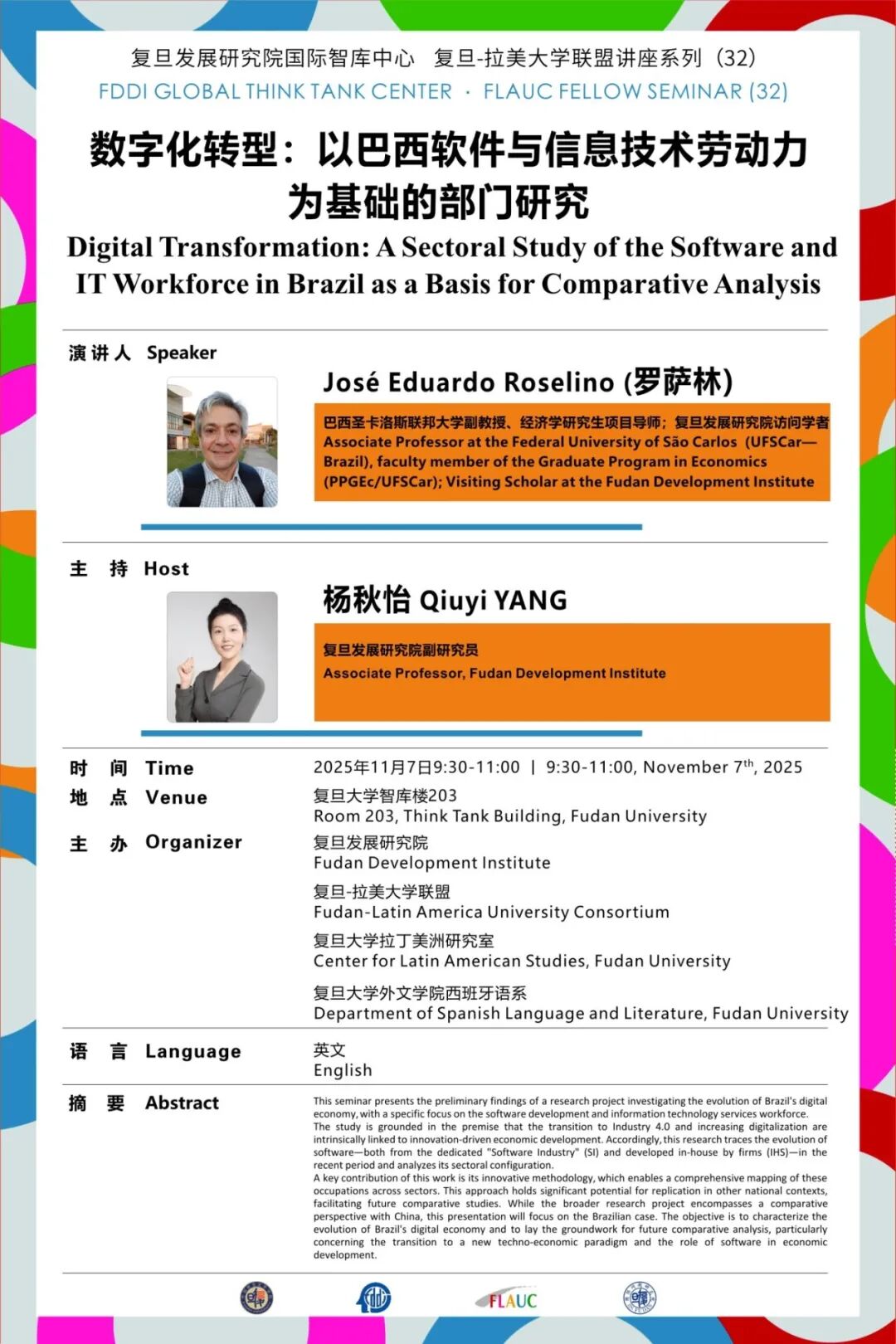作者:FDDI 发布时间:2025-11-05 15:53:45 来源:复旦发展研究院+收藏本文

主 题 / Title
数字化转型:
以巴西软件与信息技术劳动力
为基础的部门研究
Digital Transformation: A Sectoral Study of the Software and IT Workforce in Brazil as a Basis for Comparative Analysis
主 讲 / Speaker
José Eduardo Roselino (罗萨林)
巴西圣卡洛斯联邦大学副教授
经济学研究生项目导师
复旦发展研究院访问学者
InstituteAssociate Professor at the Federal University of São Carlos (UFSCar - Brazil), faculty member of the Graduate Program in Economics (PPGEc/UFSCar); Visiting Scholar at the Fudan Development Institute
主 持 / Host
杨秋怡
Qiuyi YANG
复旦发展研究院副研究员
Associate Professor,
Fudan Development Institute
时 间 / Time
2025年11月7日 9:30-11:00
9:30-11:00, November 7th, 2025
地 点 / Venue
复旦大学智库楼203
Room 203, Think Tank Building,
Fudan University
主 办 / Organizer
复旦发展研究院
Fudan Development Institute
复旦-拉美大学联盟
Fudan-Latin America University Consortium
复旦大学拉丁美洲研究室
Center for Latin American Studies,
Fudan University
复旦大学外文学院西班牙语系
Department of Spanish Language and Literature,
Fudan University
语 言 / Language
英文
English
摘 要 / Abstract
This seminar presents the preliminary findings of a research project investigating the evolution of Brazil's digital economy, with a specific focus on the software development and information technology services workforce.
The study is grounded in the premise that the transition to Industry 4.0 and increasing digitalization are intrinsically linked to innovation-driven economic development. Accordingly, this research traces the evolution of software—both from the dedicated Software Industry (SI) and developed in-house by firms (IHS)—in the recent period and analyzes its sectoral configuration.
A key contribution of this work is its innovative methodology, which enables a comprehensive mapping of these occupations across sectors. This approach holds significant potential for replication in other national contexts, facilitating future comparative studies. While the broader research project encompasses a comparative perspective with China, this presentation will focus on the Brazilian case. The objective is to characterize the evolution of Brazil's digital economy and to lay the groundwork for future comparative analysis, particularly concerning the transition to a new techno-economic paradigm and the role of software in economic development.